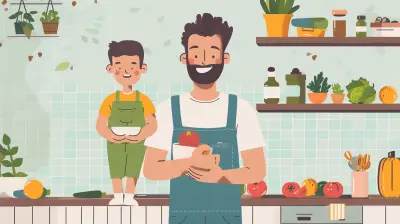Cultivating Responsibility in Your Child from an Early Age
18 August 2025
Hey there, fellow parent!
Let’s be real for a second — raising responsible kids in today's fast-paced, digital-driven world can feel like juggling flaming swords while riding a unicycle. Okay, maybe not that dramatic, but you get the point.
Responsibility isn't just about remembering to do homework or feeding the family pet (though those matter too). It’s about nurturing a mindset. A way of being that helps your child grow into a dependable, confident, and thoughtful human.
And guess what? It all starts early.
So, grab your coffee (or tea), and let’s chat about simple, doable ways you can start cultivating responsibility in your child from an early age. No lectures, no perfection needed — just real talk and real parenting.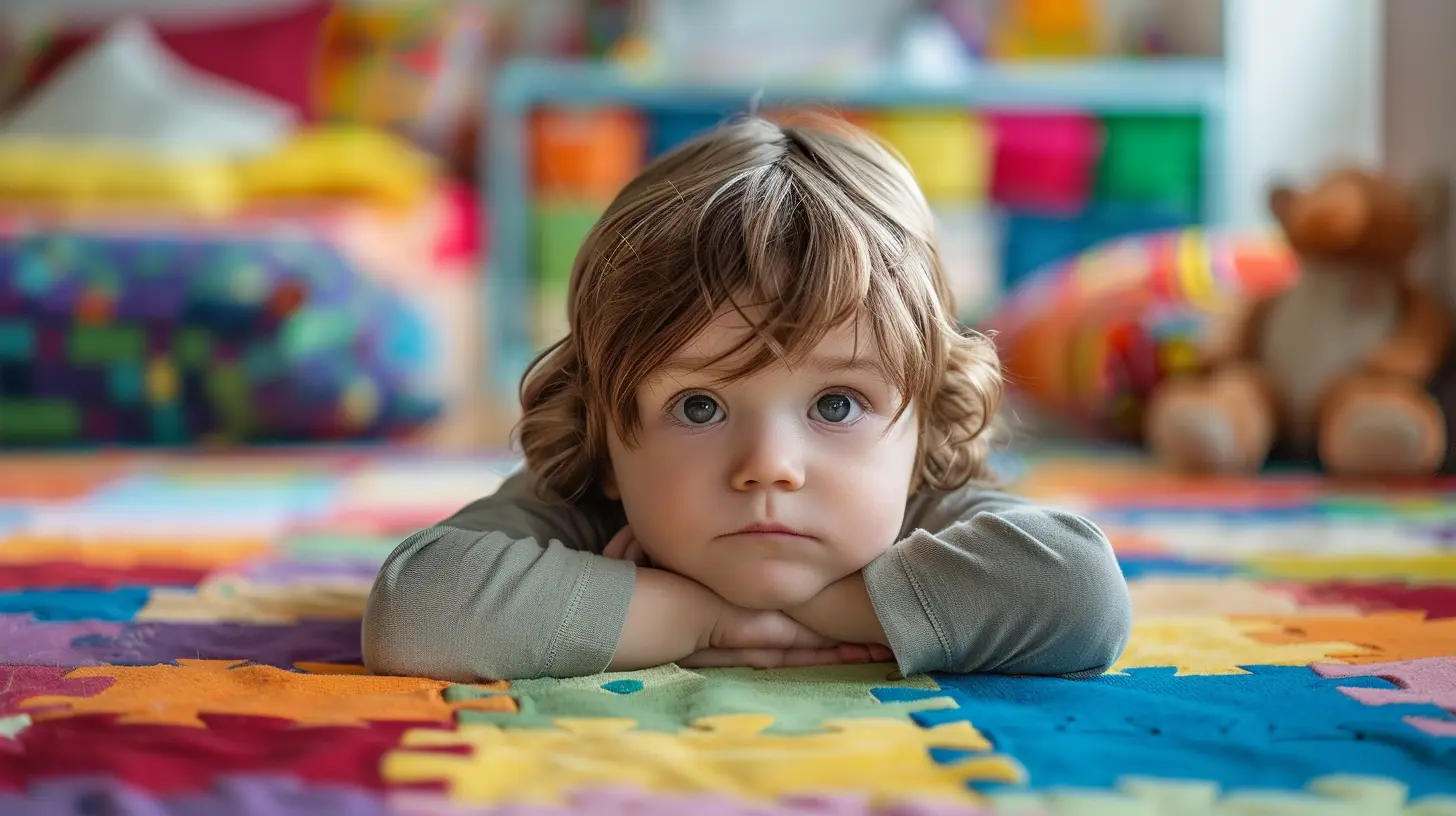
Why Responsibility Matters More Than You Think
Before we dive into the “how,” let’s talk about the “why.”Raising a responsible child isn’t just about keeping your house from falling into adorable chaos (although that is a nice perk). It’s about giving them a toolkit for life.
Responsibility builds confidence. It teaches accountability. It creates independence. And most importantly? It instills trust — in themselves and from others.
When kids learn to take ownership of their actions, they become better decision-makers, better friends, and eventually… better adults. Isn’t that what we’re all aiming for?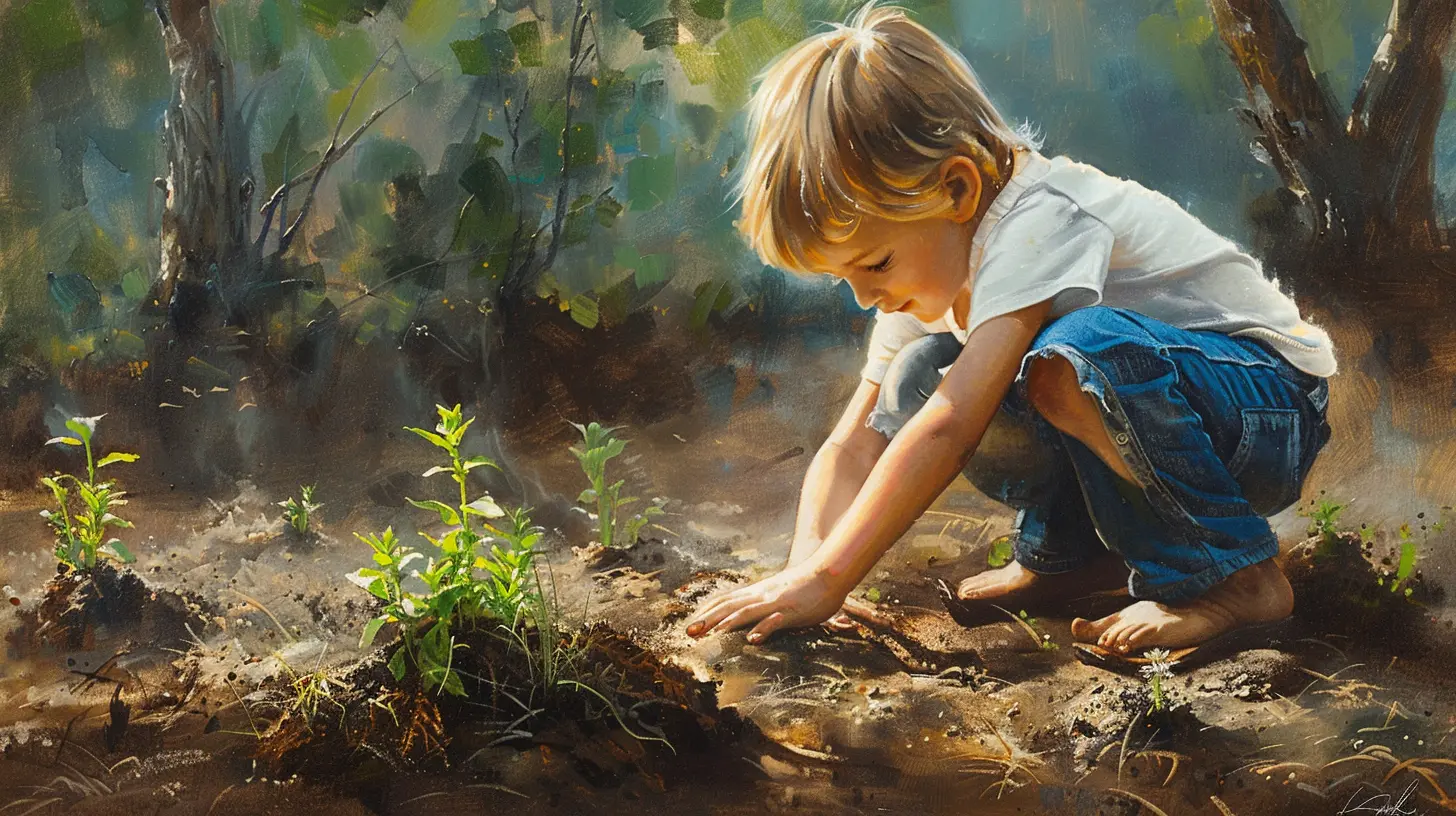
Start Early (Yes, Even Toddlers Can Help!)
The best time to start teaching responsibility? Yesterday. The second-best time? Today.Even toddlers can learn the basics. In fact, young kids crave purpose — they want to be involved, feel useful, and know their contributions matter.
So, what can little ones do? Think small tasks:
- Putting toys back in the bin
- Wiping up small spills
- Carrying their plate to the sink
- Feeding the dog with your supervision
When you involve kids in daily tasks and routines, you're not just keeping them busy — you're giving them a sense of ownership.
Let them help, even when it’s messy or inconvenient. Sure, it might take longer, but the long-term payoff? Totally worth it.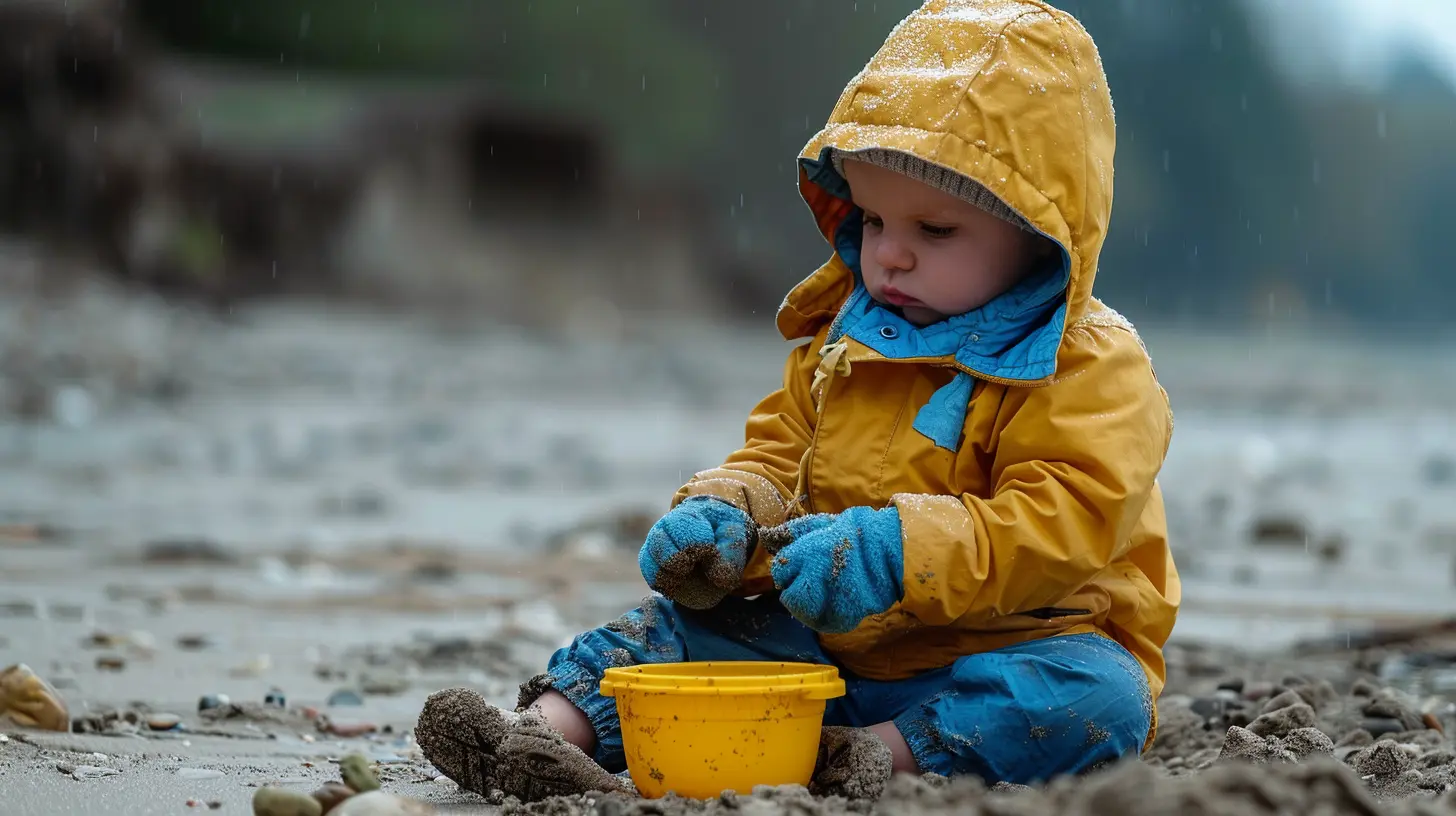
Give Them Real Responsibilities (Not Just Chores)
Let’s clear something up: chores are great, but responsibility isn’t just about doing chores. It’s about being accountable.So instead of only handing out a to-do list, give your child responsibilities that come with trust and purpose. For example:
- Let them pack their backpack for school
- Have them pick out and lay out their clothes the night before
- Let them be the “lunch helper” every morning
- Assign a “family pet care day”
The key is consistency. If their job is to feed the fish every morning, that’s their job. Not yours. Step back (even when it’s hard). Let them know you trust them to handle it.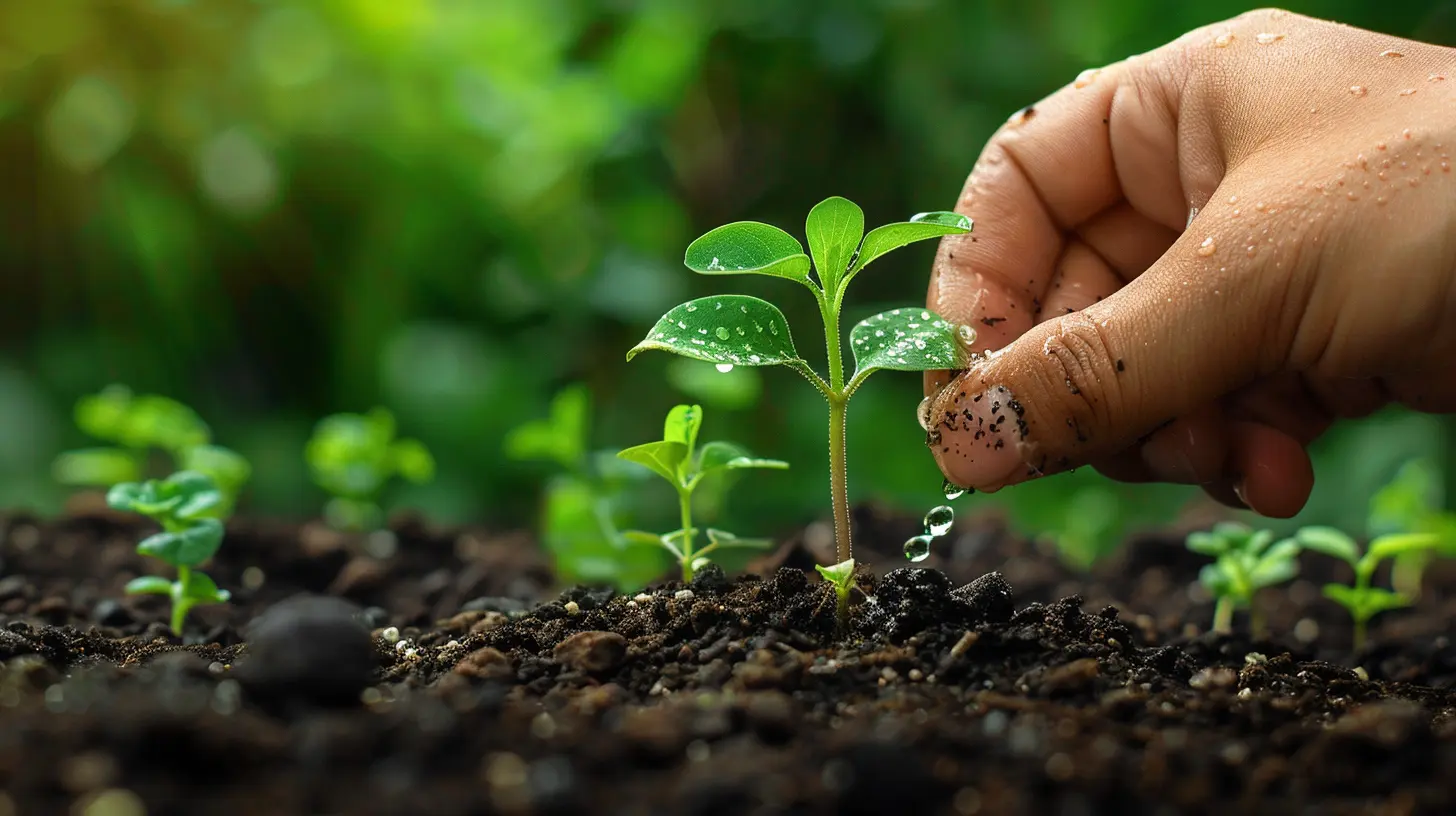
Let Them Make Choices (and Embrace the Consequences)
Here’s the thing: responsibility and decision-making go hand in hand.If your kid never gets to make a choice, how can they learn to own the outcome?
Start small:
- “Do you want to wear the red shirt or the blue one?”
- “Would you like to do your homework before dinner or after?”
- “You forgot your lunch. What do you think you can do differently tomorrow?”
When kids make their own decisions — even the not-so-great ones — they start to understand cause and effect. They begin to see how their actions lead to results, and that’s where real growth happens.
Let them stumble sometimes. And when they do? Be there, not to rescue, but to reflect and guide.
Model It Like a Pro
You could read a thousand parenting books, but nothing teaches like your own behavior.Kids are watching us all. the. time.
If you make a mistake and own up to it, they take notice.
If you keep your promises (even the little ones), they learn that keeping your word matters.
If you admit when you’re wrong and try again, they see that responsibility isn’t about being perfect — it’s about trying your best and owning your stuff.
So, show them what responsibility looks like in action. Be the role model they can mirror.
Hint: Let them hear you say things like:
- “Oops, I forgot to take out the trash. That was my job.”
- “I really didn’t feel like going to work today, but I did it because it’s my responsibility.”
- “I spilled my drink. Let me clean that up.”
Sounds simple? It is. But it's also incredibly powerful.
Celebrate Effort, Not Just Outcome
Here’s where we often mess up as parents (myself included): we praise the big wins but overlook the small steps that got them there.Let’s change that.
When your child tries to be responsible, even if they mess up — acknowledge the effort.
- “I saw you remembered to water the plant today. That’s awesome!”
- “You cleaned up your toys without being asked. High-five!”
- “You told the truth, even though it was hard. That takes guts.”
Responsibility isn’t about getting it right every time. It’s about trying, learning, and growing. When you validate the process, kids are more likely to keep showing up and stepping up.
Teach Problem-Solving (Not Just Rule-Following)
It’s tempting to give kids rules and expect them to obey. But true responsibility comes from understanding the why behind the rules, and being able to think for themselves.Instead of barking orders, let’s coach them through problems.
Example:
Your child forgot their science project at home. Cue the panic.
Instead of saying, “I told you to pack it last night!” try:
- “What happened this morning?”
- “How could you solve this problem?”
- “What can you do next time so this doesn’t happen again?”
This transforms the moment from punishment to problem-solving. And that’s where the real magic happens.
Use Natural Consequences (Not Bribes or Threats)
I get it — when you’re running late and your kid still hasn’t put on shoes, it’s easy to blurt out, “If you don’t hurry, no cartoons later!”But bribes and threats don’t teach accountability. They teach compliance — and that's not the same thing.
Natural consequences work better. They’re life’s way of saying, “You make a choice; you feel the impact.”
- Didn’t pack lunch? They’ll feel hunger (and remember next time).
- Didn’t do homework? They deal with the teacher’s reaction.
- Didn’t clean up toys? They might not be able to find their favorite one.
When kids experience the direct results of their actions, they quickly learn to connect choices with outcomes. No yelling needed.
Encourage “Little Leader” Moments
Kids love feeling important. So, one of the best ways to build responsibility is to let them lead.Here’s how:
- Let them lead a game with younger siblings
- Ask them to teach you something they learned
- Give them a “captain” role during family time (e.g., in charge of the music playlist)
These moments show them that responsibility isn’t a burden — it’s empowering. And they feel trusted, which (surprise!) makes them more trustworthy.
Be Patient (Responsibility Isn’t a Skill, It’s a Journey)
If you’re still reading this, you’re already doing an amazing job, because you care. But let me say this:Responsibility doesn’t grow overnight.
Your child isn’t going to wake up one day and suddenly start making their bed, brushing teeth without reminders, and doing homework like a pro. (If they do, please share your secrets.)
The truth is, it’s a long game. There will be backslides. There will be resistance. Some days, it’ll feel like you’re talking to a wall made of Legos and snack crumbs.
But bit by bit, with your encouragement and example, your child will grow into the kind of person who takes ownership of their actions. Who feels capable and confident. Who shows up for themselves and others.
And isn’t that the kind of kid you want to raise?
Final Thoughts: You’re Planting Seeds, Not Trees
Teaching responsibility isn’t about having perfect kids. It’s about planting little seeds — day in and day out — that slowly grow into strong roots.Some days, it might feel like nothing’s sprouting. Other days, you’ll see a glimpse of the amazing human your child is becoming.
So, hang in there. Keep watering those seeds with love, patience, and guidance.
Because one day, seemingly out of nowhere, your child will do something – take initiative, admit a mistake, help someone else – and you’ll think, “Wow… it worked.”
Thanks for reading, and keep being the rockstar parent you are.
all images in this post were generated using AI tools
Category:
Teaching ResponsibilityAuthor:

Liam Huffman
Discussion
rate this article
1 comments
Primrose McWhorter
Start small, encourage growth.
August 23, 2025 at 3:25 PM

Liam Huffman
Absolutely! Starting small lays a strong foundation for responsibility, allowing children to build confidence and develop essential skills as they grow.

